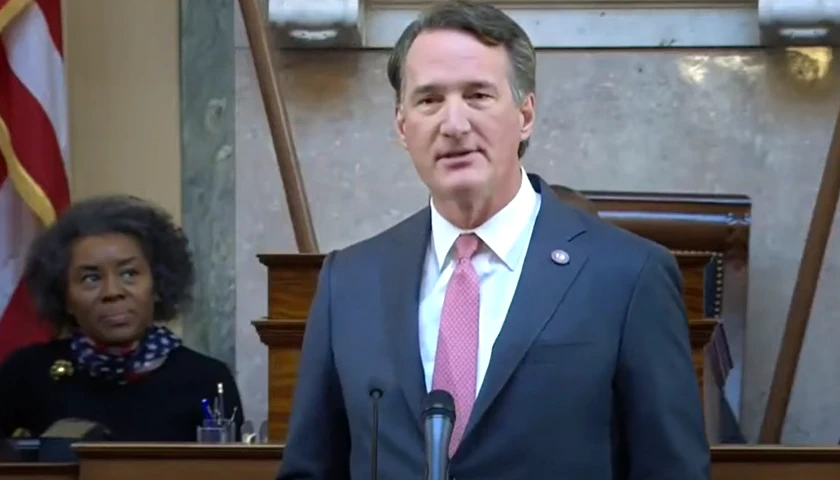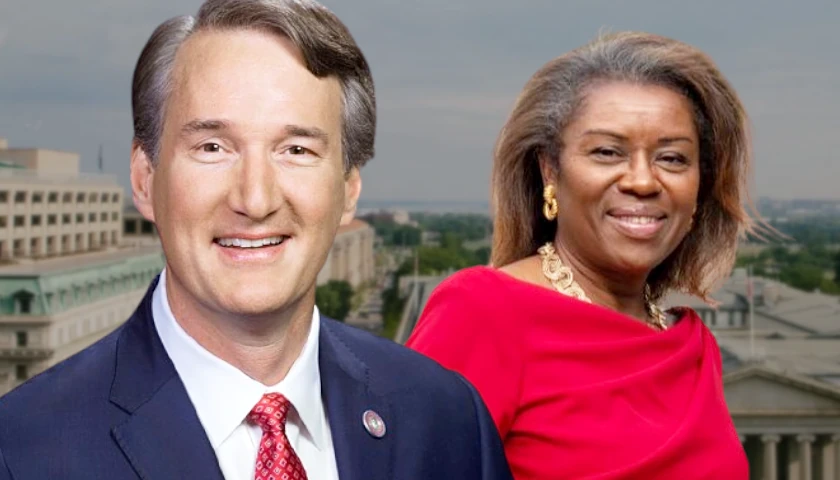Old Dominion residents go into the commonwealth’s November 7 legislative elections equally split between Democrats and Republicans, with 42 percent of voters telling the University of Mary Washington’s Center for Leadership and Media Studies poll of 1,000 Virginia adults conducted September 5 through September 11.
“Virginia has rapidly returned to its purple state status,” said Stephen J. Farnsworth (pictured above), professor of political science at the University of Mary Washington, and the center’s director. The poll included 833 registered voters, 771 likely voters, and carries a 3-percentage point margin of error.
“This new statewide survey shows that Virginia’s voters are basically evenly divided as they approach the upcoming Virginia legislative elections,” he said.
“Expect each political party to continue to talk past the other,” he said.
“Republicans will focus on perceived threats to parental rights in education, while Democrats will talk about what Republicans will do to further restrict abortion if they secure legislative majorities in Richmond,” the professor said. “The very close divisions among voter preferences in this survey demonstrate that both parties are largely evenly matched in Virginia right now.”
This year, the commonwealth holds off-cycle elections for all General Assembly seats, the State Senate and the House of Delegates. Two years ago, Virginia elected Republican Governor Glenn Youngkin, and his coattails were enough for Republicans to take control of the lower chamber; the Senate was not in play.
The task for Youngkin and Republicans is to hold onto the House of Delegates, where they have a 49-46 advantage with five vacancies, and overcome the Democrats’ 22-18 advantage in the State Senate.
Farnsworth said although the governor is not on the ballot, voters are making their decisions based on their opinion of Youngkin.
“Virginia midterm elections are at least partially a referendum on the incumbent governor, who has served nearly half a term at that point,” he said.
The Mary Washington poll showed Youngkin with 40 percent of Virginians approving of the governor’s performance and 37 percent disapproving, according to the poll.
Youngkin has a 74 percent approval with Republicans, 36 percent with Independents and 16 percent with Democrats.
The governor’s net approval rating is three percentage points, a drop from his 15-point net approval in the school’s 2022 poll.
Youngkin’s three-point net-positive assessment was down from a 15-point net-positive assessment in the September 2022 poll.
In that poll, the headline was Youngkin’s potential challenge to Democratic U.S. Senator Tim Kaine in 2024. One year ago, Kaine had the support of 41 percent of Virginia adults compared to 39 percent of adults supporting the governor.
Less than six weeks from Election Day, the speculation about a Youngkin Senate run has given way to the rumor intelligence that if the governor can win the state government trifecta—GOP control of the governor’s mansion and both legislative chambers—Republican mandarins and donors will draft him as the last candidate with a chance to block President Donald J. Trump’s return to the White House.
– – –
Neil W. McCabe is a staff reporter for The Virginia Star.
Photo “Stephen J. Farnsworth” by University of Mary Washington.





